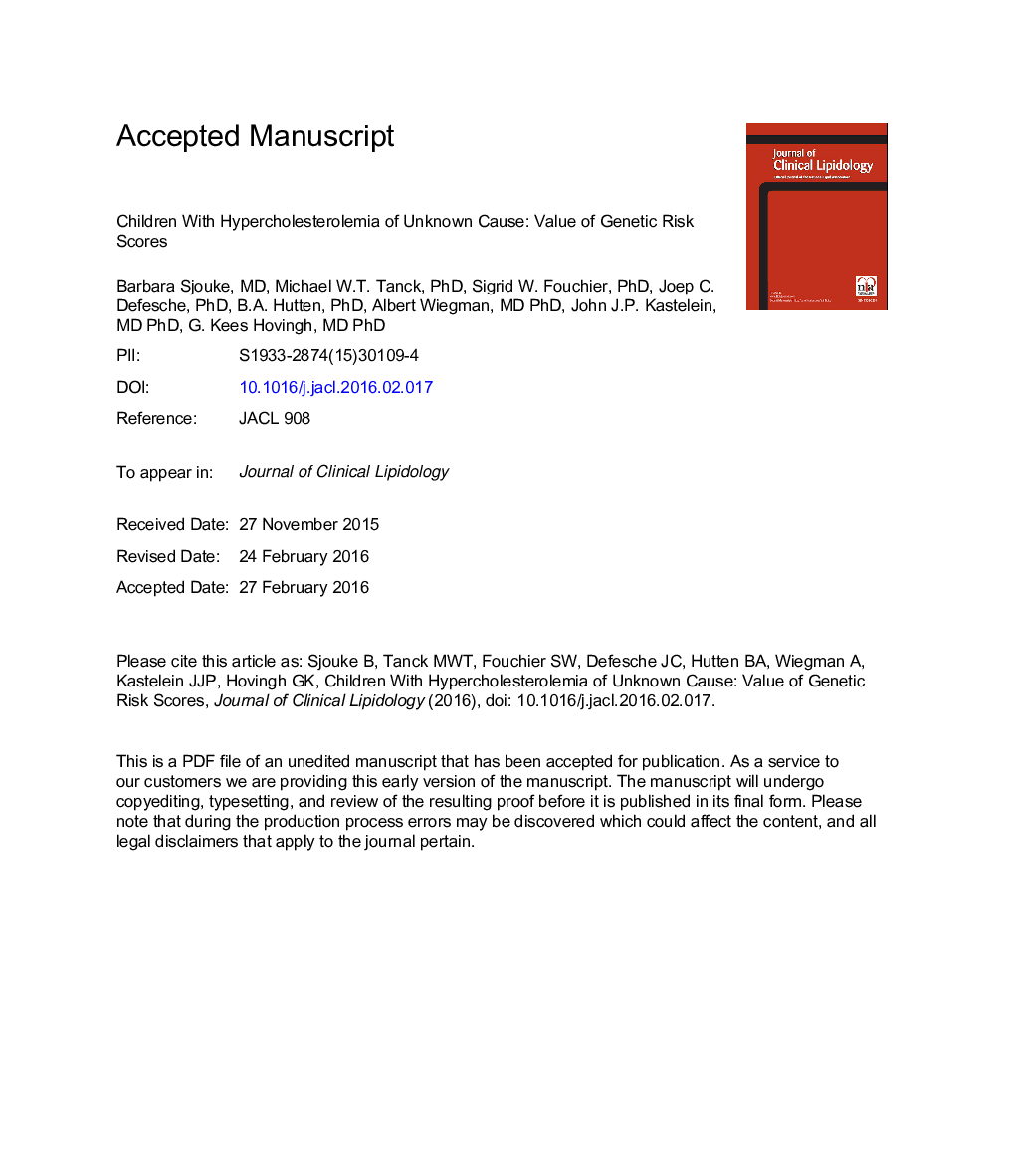| Article ID | Journal | Published Year | Pages | File Type |
|---|---|---|---|---|
| 5615278 | Journal of Clinical Lipidology | 2016 | 32 Pages |
Abstract
In this and our previous study, we show that a causal mutation in LDLR, APOB, and PCSK9 can be identified in almost all children with a definite clinical diagnosis of FH. In the small group of patients without a mutation, we did not observe a higher GRS compared with unaffected relatives, which suggests that the FH phenotype is not caused by the aggregate of LDL-C increasing SNPs. Our data imply that application of the GRS is not instrumental as a diagnostic tool to individually define clinically diagnosed FH patients with polygenic hypercholesterolemia in our study population.
Related Topics
Health Sciences
Medicine and Dentistry
Cardiology and Cardiovascular Medicine
Authors
Barbara MD, Michael W.T. PhD, Sigrid W. PhD, Joep C. PhD, Barbara A. PhD, Albert MD, PhD, John J.P. MD, PhD, G. Kees MD, PhD,
